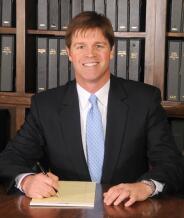In the "Let's Talk Legal" meeting, Cecil Harvell discussed the three types of wills recognized in North Carolina: the attested typewritten will, the holographic will, and the rare non-cupitive or soldier's will, emphasizing the state-specific nature of estate laws. He highlighted the importance of having properly prepared wills to avoid delays and costs, recommending professional legal assistance, especially when dealing with contingencies like beneficiaries who are minors or deceased. Cecil also advised clients to protect original wills from unauthorized changes and stressed that initial consultations require very little documentation, with additional information gathered as the process progresses.
Types of Wills in North Carolina
-
North Carolina recognizes three types of wills:
-
Attested typewritten will: Most common, usually prepared by lawyers, typewritten, signed by the testator, and witnessed by two witnesses in the presence of a notary. [02:00]
-
Holographic will: Entirely handwritten by the testator, must clearly express intent to dispose of property, but often problematic due to missing contingencies or details. [03:50]
-
Nuncupative (non-cupitive) will: A spoken will, typically by a soldier who does not survive after speaking it. Very rare but still recognized in North Carolina. [04:40]
-
Legal Requirements and Authentication of Wills
-
Typewritten wills require a signature from the testator and two witnesses, usually notarized, because the typewriting does not authenticate the document as a personal statement without signatures. Handwritten wills have inherent authenticity due to recognizable handwriting. [06:00]
-
Original will documents should be protected carefully to avoid unauthorized changes or markings, with copies used to make amendments to preserve the original’s sanctity. [13:00]
Common Issues and Legal Concerns with Wills
-
Handwritten/holographic wills often miss key contingencies such as alternate executors or provisions for minors, causing delays and additional cost in probate. [08:00]
-
Cases arise where additions or corrections made on wills after signing lead to legal disputes requiring declaratory judgment to interpret. [12:00]
-
A recent example: a client leaving a large gift to a four-year-old beneficiary without providing a proper legal holdback or trust provisions for the minor. This illustrates the importance of carefully drafted wills by lawyers to avoid missing details. [09:50]
Process for Creating or Updating a Will
-
Individuals do not need to bring extensive documents when initially meeting Cecil Harvell for will preparation. The law office will guide them through collecting needed information to avoid delays caused by fear or anxiety over paperwork. The initial appointment focuses on the client, and paralegals assist with document collection later. [16:00]


